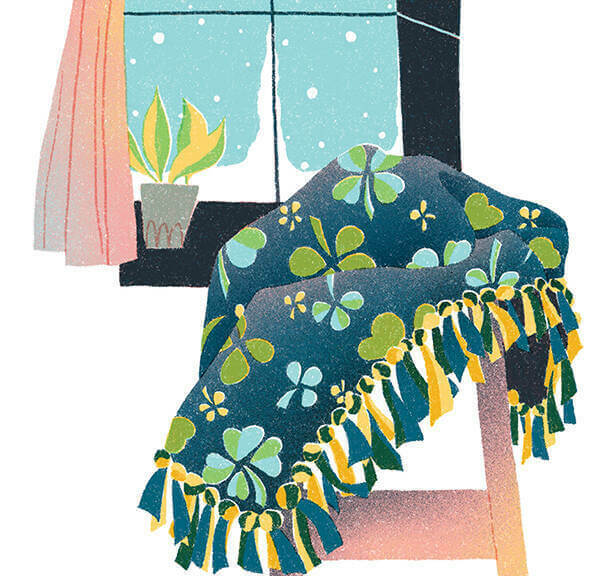
Serendipitous, Mom supposed, that I left my phone at Grandma’s house. And I suppose it was.
To be free from my phone for a few hours meant having the freedom to read without distraction. I struggled with Virginia Woolf’s To the Lighthouse for an hour or so before deciding I didn’t much care for her modern angst. It was distant to me, unimportant. Instead I was left with Angela’s Ashes, a much more accessible read, mostly because it’s Irish. Frank McCourt writes of his childhood, “Above all — we were wet.” By virtue of their geography, the Irish suffer. It’s no wonder so many Irish immigrants chose Wisconsin as their new home: Midwestern snow is a close cousin of torrential Irish rain.
April, but it was snowy out. Made for easy small talk:
“How ’bout this weather, huh?”
“I’ve had enough.”
- Sisterhood
- Sistering, Sheila Weller
- My Warm Spot, Genevieve Redsten ’22
- Who Do I Say I Am? Maraya Steadman ’89, ’90MBA
- The Ones Who Came Before, Elizabeth Hogan ’99
- A Benevolence of Friends, Mary McGreevy ’89
- Still Some Loose Threads, Maggie Green Cambria ’88
- Flame Launcher, Interview by Tess Gunty ’15
- Rider on the Storm, John Rosengren
- Under the Long Haul, Abby Jorgensen ’16, ’18M.A.
- Writing Her Own Script, Madeline Buckley ’11
- Callings Unanswered, Anna Keating ’06
- Much More than Baby Talk, Adriana Pratt ’12
- Undeterred, Abigail Pesta ’91
- The Good Place, John Nagy ’00M.A.
- Scene Setter, Jason Kelly ’95
- She’s Got Game, Lesley Visser
Outside, the dim streetlamp shone like a spotlight on my car, covered in the kind of snow that clings hard. That kind of snow — mostly ice — called for a good window scraper. Only after long, deep, rhythmic scrapes would the thick coating of winter begin to reveal the windshield. Even after that scraping, small pieces of ice remained, speckled across the glass.
The drive over was quiet, and when I arrived at Grandma’s, her street was quiet, too. Small cookie-cutter houses stood still, obscured by steady snowfall. I paused to appreciate it all and reflected that it’s rather concordant that she lives on this street: quiet, still, unassuming.
“Oh, don’t take your shoes off,” she muttered as she beckoned me inside. “After you left, I was thinking, and I thought I just had to give you this.” She guided me to her room. I should probably note that, although she lives alone, Grandma has chosen to live in the smallest room in her three-bedroom house. She leaves the other two vacant “for Monie,” her daughter who visits from Spain about once a year. She sleeps in a twin-sized bed with cotton sheets, all she needs. On the wall hangs a small crucifix.
“Here,” she said, handing me a blanket. “Remember, I used to make these.”
It was fleece, one of those blankets you make by cutting strips along the edge and tying them into knots.
“It’s shamrock patterned. And I thought, ‘Notre Dame, shamrocks, Irish’ so I wanted you to have it,” she explained. I smiled and cried a little, and then we walked back out of her room. In the hallway, I saw her picture of Pope Francis.
“I can’t believe they let you drive here all by yourself in this weather,” she said as I put my shoes on. She stood in the doorway while I scraped my windshield a little more before taking off.
I doubt I’ll ever finish To the Lighthouse, but I did manage to read the introduction, written by novelist Margaret Drabble, which provided a nice summary and analysis of the book. Drabble writes of the character Mrs. Ramsay: “She does not aim to leave a mark. Her triumphs are transitory, and she is content with that. She ponders the riddle of permanence but forgets it for rabbits and flowerbeds and the view of the bay.”
Snow in April is all right. Bad weather brings you closer to the hearth.
Genevieve Redsten, a former editor-in-chief of Scholastic, studied English and journalism at Notre Dame.